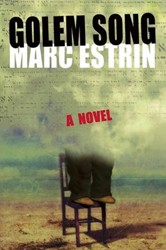Susan Sherman is a born storyteller. Not only does she provide an intriguing plot with numerous twists, she allows you to see pictures in your mind, replete with smells and sounds. For example, “It was market day and the air smelled of rotting fruit, manure, and sweating horses.”
Sherman follows Hemingway’s advice to writers:Tell them how the weather was. And the weather was not pleasant for Jews in Russia in 1904. Jews either had to pay beyond what they could afford to the officials or suffer pogroms. However, Berta, the young girl portrayed early in the novel, is too self-centered to pay attention to the world at large. She is more interested in fashion, and in maintaining her beauty and position in her wealthy cousin’s mansion in Moscow, where she had been summoned for her use as a companion and had been living for the last six months. She is so shallow that on the train back to the little town of Mosny, she doesn’t admit to a stranger sharing her compartment that the shabby man and woman waving frantically at her on the train platform are her parents. She had told her that they were dead.
It is only after she receives her Moscow relatives’ dismissal notice, that she becomes aware that she has been living a delusion. She had expected to remain with her rich relatives forever and to forget her family. Once home, however, she begins to understand who she is, how much she has missed her parents and sister. She also realizes how much she has learned, besides how to dress, during the last six months…from books she has read in French, from poets she has discovered and from the lifestyle of the rich which she had ingested while in Moscow. That is why she cannot respond romantically to the ordinary Yeshiva boys in her town and is willing to go it alone until a newcomer, a wheat merchant, impresses her with his intelligence and his wealth.
What ensues after her marriage and how she survives after some unfortunate decisions is reminiscent of both Scarlett O’Hara and Becky Sharpe. That is, she remains true to type until she is humbled and finally forced to transcend her weaknesses. Whatever Berta’s flaws, and one of them may be that she is almost inhumanly resilient, she is a fascinating woman to read about.
Join a community of readers who are committed to Jewish stories
Sign up for JBC’s Nu Reads, a curated selection of Jewish books delivered straight to your door!





